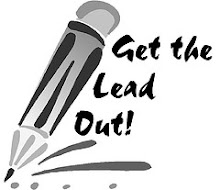There I took her life
Met her on the mountain
Stabbed her my knife
Hang down your head, Tom Dooley
Hang down your head and cry
Hang down your head, Tom Dooley
Poor boy you’re bound to die
 I've been reading a book by John Foster West, professor of English with Appalachian State University. He wrote an account of the life, incarceration and death of Tom Dooley, the subject of the well-known song by the Kingston Trio.
I've been reading a book by John Foster West, professor of English with Appalachian State University. He wrote an account of the life, incarceration and death of Tom Dooley, the subject of the well-known song by the Kingston Trio.Though it is spelled Dooley in the folktales, the accurate spelling is Dula. In Appalachian English, you see “A” pronounced as “Y.” A notable example of this is the Grand Old Opry, where the word opera was pronounced with the same “Y” sound.
Tom Dula became a folk music figure as a criminal, accused of and hanged for murdering Laura Foster in the spring of 1866, in the foothills of western North Carolina. Laura Foster left home on her father’s only mare, dressed in the best clothes she owned, planning to marry Tom and begin a new life with him. She was killed less than 24 hours later and buried in a shallow grave, so small her legs had to be drawn up near her chest.
It sounds like a typical Appalachian folktale – a little grisly. But what makes it different is that it has a rather unconventional back story.
Tom and Laura happened to be involved in a complex love triangle, which started over ten years before her death. Laura Foster had two cousins, Ann and Pauline. Tom was quite a womanizer, so when I say that he knew her cousins, it’s because he “knew” them. In fact, his relationship with Ann began when he was around 14 years old, and continued conspicuously even after she was married to James Melton. Melton was a busy cobbler in the area, and it’s reported that Tom slept in her bed as often as James did.
But just for giggles, Tom slept with Laura about once a week too. Laura had a specific reputation for being “frail,” which in those days did not refer to physical stamina, but a moral frailty. Less polite folks simply described her as having “round heels,” meaning she spent more time on her back than she did standing.
Enter the third Foster cousin, Pauline. She was from out of town, in neighboring Watauga county. She came for a visit because she needed to see the only doctor in the mountain region. But she didn’t arrive pregnant. She arrived with what mountain people called The Pock -- Syphilis. The summer after she arrived, everyone -- Ann Foster, her husband, James Melton, Laura Foster and Tom Dula -- shared the same affliction.
How’s that for getting around?
So Tom Dula? He killed Laura Foster because he thought she had given him the Pock. Sadly, it was Pauline who took that honor. Why did he think it was Laura? Well, it's safe to assume this was Ann's doing. Pauline might have "known" Tom, but she didn't aspire to much more. Laura on the other hand wanted something a little more permanent. And Ann wasn't too keen on that. Given that Pauline lived with Ann and her husband, and wasn't exactly quiet about her condition, I think it's fair to believe that when Tom told Ann of his condition and that he was going to "run through" the person who gave it to him, Ann saw her chance to eliminate some competition. But as it turns out, Pauline may have brought a disease down on people's heads, but she also turned in both Tom, for the murder itself, and Ann, for her part in it. Tom was tried twice, convicted both times, and before his death wrote a note exonerating Ann, who was later acquitted.
The book contains this passage:
Anyone wishing to visit Elkville today can do so by driving 11.2 miles north of U.S. 321, starting five miles west of Lenoir; by traveling Highway 268, 19 miles south from U.S. 421 at Wilkesboro to Elk Creek; or by turning left from U.S. 421 onto Mt. Pleasant Road, 11 miles west of Wilkesboro and driving south-southeast to Highway 268 at Ferguson.
As a visitor travels north on Highway 268, he will not find that the old Stony Fork Road branches off to the left as soon as he crosses Elk Creek, as indicated in a crudely drawn map used as evidence in Tom Dula's trials. Today, it is necessary to turn left and follow the Elk Creek Road (S.R. 1159) 1.6 miles west, before turning right onto the Stony Fork Road, recently renamed the Gladys Fork Road by the DOT. The old Stony Fork Road (Gladys Fork Road) crosses Reedy Branch, one mile from the Elk Creek Road, Laura Foster Ridge, and a good many hills and hollows, before ending 3.6 miles north of Elk Creek at S.R. 1135, which connects with the Mt. Pleasant Road some distance to the northeast and leads to Highway 268 at Ferguson.
It could inspire you to take a road trip, couldn't it? History is a treasure. It’s interesting enough in a book, but sometime this year, if not this month, I recommend finding some part of history you want to hold between your fingers. Reach out and touch it, so it never disappears.
--Laura
--------------------------------------
From: Lift Up Your Head, Tom Dooley: The True Story of the Appalachian Murder That Inspired One of America's Most Popular Ballads, by John Foster West.
Down Home Press, P.O. Box 4126, Asheboro NC 27204 ISBN:1-878086-20-0












